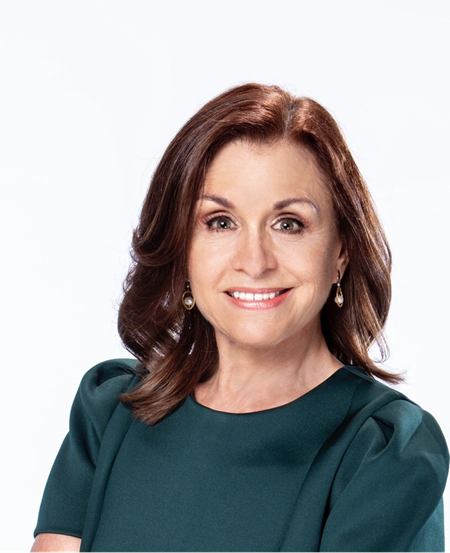How to Prepare Teens for Healthy Social Media Use

By: Dr. Marisa Azaret
February 01, 2025
Much has been written and said regarding social media’s impact on children and teens. With this impact growing each and every day, media mental health experts – including this one – encourage parents to openly discuss and provide guidelines for social media use to help prepare teens to engage on platforms safely and wisely.
Dr. Pam Rutledge, who directs the independent Media Psychology Research Center, points out that while there is no question that social media and the internet present challenges, “the risks are much, much greater for kids who are unprepared and vulnerable because they lack the knowledge, skills or confidence to act safely or responsibly.”
Several states, including Florida, have recently introduced laws to ban social media use among children. The Florida law prohibits use by kids under the age of 14, while those ages 14 and 15 must have parental permission to join social media platforms.
Banning activity by young, less mature children can positively impact kids’ mental health. However, legal challenges to the new law are working their way through the courts and some experts warn that tech-savvy kids may find ways to bypass any restrictions and establish social media accounts anyway.
Consider these recommendations for helping your child establish a healthy relationship with social media.
Platform Settings and Safety Guidelines
Most social media sites provide the option to make accounts private. Ensure that your child uses privacy settings and check them frequently to make sure the settings stay active.
Also, be sure your child knows that you will be checking their accounts regularly and what the consequences will be if they don’t follow safety guidelines.
Establish screen time limits for which websites, apps, or games your child is allowed to use, then discuss and remind your child of the following rules on a regular basis:
-
Don’t share personal details on the site, including phone numbers, addresses or information detailing where the child will be at a given time.
-
Don’t accept friend requests from people they don’t know.
-
Use good judgment in posting photos, staying away from photos that may be suggestive or showcase behavior that is not condoned by the family.
-
Don’t overshare on the site. Sharing private thoughts or too much personal information may lead to unintended consequences.
-
Don’t bully or be mean to others.
-
Use strong passwords to make sure the account is not hacked and don’t share passwords with others.
Maintain a Dialogue
As your child starts using social platforms or continues to engage with those they are already using, you should maintain a dialogue with them about what they are seeing.
Talk to them about how to recognize online predators. Discuss the potential for bullying and the spread of misinformation or inappropriate content on social media, as well as encourage ongoing communication with your child about what they encounter.
This ongoing communication is especially important if your child is targeted by social media bullies or if they are exposed to inappropriate content. Together, you can discuss how to deal with situations that arise, such as blocking bullies or reporting their behavior to the platforms — or, in some cases, to law enforcement.
Promote Critical Thinking
Parents and teachers can encourage critical thinking related to what children and teens are currently seeing on social media. Ask kids to identify fake news and doctored photos on social media and encourage them not to share stories and material they cannot validate.
National Geographic recently published some kid-friendly tools for identifying fake news and images. These can be good resources to share with kids to help them become more sophisticated in distinguishing legitimate news and images.
Model Good Social Media Behavior
So much of parenting is about setting a good example for our children. Remember that children can see your public social media accounts, or private ones if you’ve allowed them to friend or follow you.
Model good behavior by using social media in positive ways that are respectful of others and avoid promoting misleading content or making comments that may be harmful to others.
Click here for more tips on how to help your family navigate the influence of social media.
Dr. Marisa Azaret is Director of Clinical Psychology at Nicklaus Children’s Hospital and Co-Chair of the Digital Safety Alliance. If your child is experiencing symptoms of depression, anxiety or other behavioral disorders, it may be time to seek professional help. Contact the Nicklaus Children’s Psychology Team at: 305-669-6503.